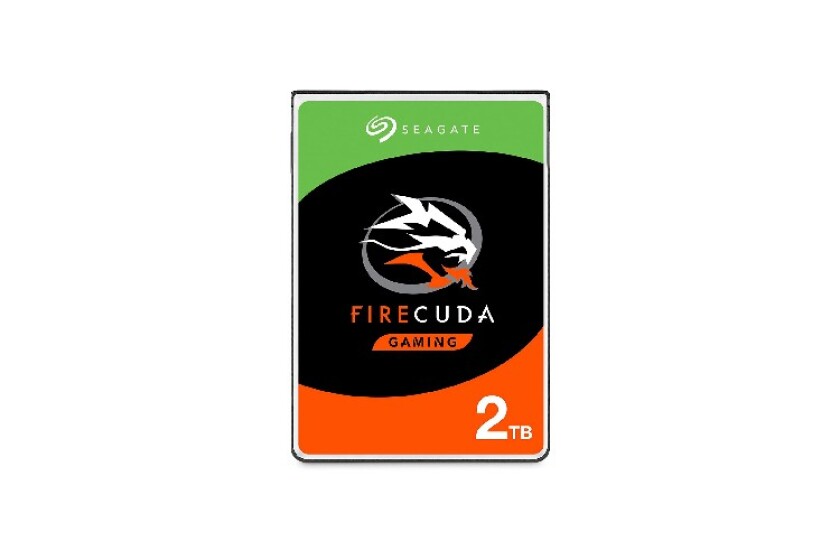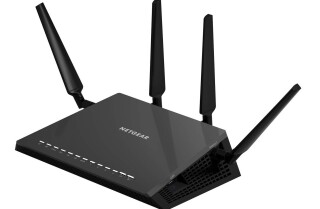Simple Digital Storage: Best NAS (Network Attached Storage)
-
WD 8TB My Cloud EX2 Ultra Network Attached Storage - NAS -
NETGEAR Ready NAS -
Seagate Firecuda 2TB 2.5-Inch SATA 6Gb/s Internal Hard Drive NAS Network Attached Storage -
Western Digital 8TB My Cloud Home Personal Network Attached Storage -
Buyer's Guide
Network attached storage allows for digital storage available across a wired/wireless network. Many implementations focus on redundancy, performance, or throughput. The best NAS (Network Attached Storages) in 2022 devices are simple to use, feature excellent cooling options, and function reliably to allow for maximum uptime for accessing digital media over a local area network.
Many NAS devices allow for multiple hard disks to be inserted within the unit to increase the storage pool and offer RAID support for physical disk redundancy, or through duplication within Windows Home Server. Before making a selection, take a look at the NAS buyer’s guide for more information and suggestions on the best option for your setup.
Compare The Best NAS (Network Attached Storage) Of 2022
WD 8TB My Cloud EX2 Ultra Network Attached Storage - NAS - Best NAS (Network Attached Storage) Overall
One thing to keep in mind with this home NAS is that if you're looking for a professional-light version which gives you a lot of tools for a home setup, then this option probably isn’t for you. This is a pretty simple model that comes with hard drives provided so there's little you need to do to set it up. It has a storage capacity of 4TB, though there are also diskless models available, along with ones that have more storage installed: 6TB, 8TB, or even 12TB.
What really allows this selection to shine is just how easy it is to set up since there's no need to install or swap out drives and you don't have to fiddle with a range of applications to get it up and running on your network. While it has 512MB of memory and a 1.2GHz processor, it’s not going to run as fast as something like the Synology DS715 so that’s something to keep in mind. You get a Gigabit Ethernet port and two USB 3.0 ports on this model which gives you some good connectivity, though it lacks an eSATA port.
NETGEAR Ready NAS - Runner Up
This is a four-bay model that is available for a pretty reasonable price, while offering terrific overall performance. Each bay can hold up to a 6TB drive, for a total of 24TB of storage. You can expand on this setup with additional hardware from Netgear, however, that brings that total up to 14 bays and 84TB of data. It has a 2.1GHz dual-core processor and 2GB of memory. There's a simple-to-use user interface that lets you set up your server and get it working on your network however you want. There is a USB 2.0 port and two USB 3.0 ports, one of which is a shared USB/eSATA port, plus there's another eSATA port for even more storage. Two Gigabit LAN ports give you plenty of connectivity, all of which comes together to give you a great option for a high performance NAS.
Seagate Firecuda 2TB 2.5-Inch SATA 6Gb/s Internal Hard Drive NAS Network Attached Storage - Honorable Mention
While there are a somewhat limited number of budget NAS models that include storage with them, this is one of the best ones out there. The 2TB model is the best overall value, but you might also consider either the 4TB model also available, since it does not cost much more for quite a lot more storage space. This budget NAS has two bays, one of which is taken up by a 2TB hard drive, with support for a maximum of 10TB of total data storage. It has 512MB of DDR3 memory and a 1.2GHz processor, which helps it run fast and keep your data accessible. You get a lot of connectivity with this one, which has two USB 3.0 ports, as well as two Ethernet ports.
Western Digital 8TB My Cloud Home Personal Network Attached Storage - Consider
While there is a lot to like about this NAS, there are a few things that just hold it back from being the very best budget option on the market. It has two bays and is a diskless model, which saves you money, but it only supports a maximum of 8TB of storage, which is less than some other ones out there. The bays can fit 2.5 or 3.5 inch drives and support both hard disk drives and solid state drives. There are a total of three USB ports on this NAS, one USB 2.0 port and two USB 3.0 ports. A single Gigabit LAN Ethernet port gives you solid network connectivity. It has 512MB of memory and a 1.2GHz processor, which keeps it running nice and fast, but not quite as well as a dual-core CPU.
Buyer's Guide
There are a lot of specific details and considerations to keep in mind before choosing the right NAS for your system, but taking them one at a time can help simplify the process. The design and type of storage you want make a big difference, so carefully consider your options. You should also look at the size, depending on your design preference, and the number and types of ports available. It can help to treat your NAS almost like a specialized, separate computer, so consider memory and processor to ensure fast, reliable access to your data.
Desktop vs Rackmount Design
Desktop
A desktop NAS is a relatively small housing for one or more hard drives that can sit on your desk or near your work area. If you’re looking to setup your NAS for media storage in a house or for a small business, then a desktop model is probably best for you.
Rackmount
A rackmount option requires a server rack and fits on one or more shelves to give you extra data storage. A rackmount option is better if you have a medium-sized or large business, though you need a server rack to house it.
Diskless vs Included HDD
A diskless model is just what it sounds like, as it doesn’t have any kind of hard disk drive included so it’s just a housing to which you can add your own storage. There are other models that include one or more HDDs.
The best option really depends on what you plan on setting up. If you need included storage, choose one with a hard drive. On the other hand, if you plan on adding your own hard drives separately, a diskless option is better.
Form Factor and Size
The form factor of a NAS system is indicated differently depending on what design you choose. Desktop options are usually measured in terms of the number of bays available. Each bay can house a single hard drive, so if you need to place three drives in your NAS, then choose one with at least three bays.
Rackmount models are measured in terms of how many shelves or units are used up by the NAS. If a NAS requires three shelves it will be described as 3U, while a smaller model that only takes one shelf is indicated as 1U. Larger models offer you more storage, but also take up more space, so make sure you have room enough for whatever model you are interested in and choose one that has enough storage for your needs.
Number of RJ-45 Ports
RJ-45 ports are used to connect your NAS physically to other devices such as computers or other networking hardware. This really comes down to figuring out your overall network design and choosing a NAS model that has enough ports to connect to your other hardware.
Most models have at least one or two RJ-45 ports, but there are also NAS systems with three or four ports. To make sure you choose the right option, plan out your network and determine how many ports you need, then pick a NAS that works with your requirements.
Number and Type of USB Ports
In addition to RJ-45 ports for connecting other networking hardware, many NAS devices also include USB ports for additional device connectivity. This is a bit more common for desktop models, since rackmount NAS systems are more specialized types of hardware, but both designs frequently include USB ports. You should consider not only the number of USB ports you need but also what version. USB 2.0 ports can slow down data storage access, so look for a NAS with enough USB 3.0 ports for your hardware needs.
eSATA Ports
While most of your storage in a NAS will be installed directly into the hardware, you can choose a model with one or more eSATA ports for additional storage options. Many NAS systems include one or two eSATA ports, but there are also some that include one or two eSATA II ports for faster connectivity when transferring data between drives.
Unless you know for sure that you really need an eSATA II port or two on your system, it is probably best to look at other factors first when determining the right option for you. Having one or two eSATA ports is definitely helpful, however, so it is still worth considering.
Processor Type
While you do not have to choose a NAS that includes a processor, it is at least worth considering and looking at. Models without processors work just fine, but if you are spending several hundred dollars or more on a system, then it should be as good as possible.
A processor in the NAS helps it run faster and handle requests for data more efficiently, since it can devote processing power to these tasks. Look at the different models with processors and choose one that gives you the fastest processing power possible, preferably an Intel Xeon or Atom processor.
Maximum and Default Memory
The memory in a NAS helps keep the system running quickly, providing some temporary memory for data requests and submissions. You want to look at not only how much memory comes with a NAS but also the maximum, so that you can plan out any future additions or improvements.
For a desktop model, either 512MB or 1GB of default memory is quite good, with up to 8GB of maximum memory being the best you are likely to find. Rackmount NAS systems usually have 1GB or 2GB as the default amount, and maximum memory usually going up to 8GB.
Manufacturer and Warranty
If you are going to spend hundreds or thousands of dollars on a NAS system, then it is worthwhile to choose a reliable manufacturer that offers a warranty to protect your investment. Companies like Netgear, Western Digital, and Seagate are well known for the hard drives they produce and also make reliable, excellent desktop NAS systems. For rackmount options, you should consider manufacturers such as Synology, Netgear, and Buffalo. Your NAS should be covered by at least a three-year warranty, though five years or more of protection for such an investment is certainly ideal.












